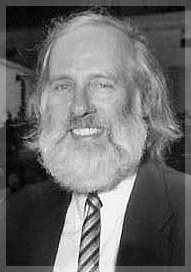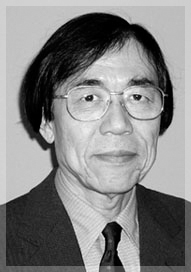The 2001 Keio Medical Science Prize Awardees
Tony Hunter

Professor, The Salk Institute for Biological Studies
Adjunct Professor, University of California, San Diego
Reason for Selection
Theme:Identification of Src tyrosine kinase and functional study of cell growth and tumorgenesis
In 1980, Dr. Tony Hunter became the first to identify Src tyrosine kinase and its relevance in tumorgenesis. His work stimulated all of the subsequent studies on this topic, which led to the identification of many tyrosine kinases and phosphatases and their fundamental role in cellular signal transduction and growth control. Since his discovery of tyrosine kinase, Dr. Hunter has focused on learning more about the physiology of the protein-tyrosine phosphorylation triggered by Src kinase and how their perturbations result in tumorgenesis. Dr. Hunter has been awarded for his fundamental contribution to our molecular understanding of the control of cell growth.
Background
- <Education>
- 1965
- University of Cambridge, England, B.A. (First Class Honours)
- 1966
- University of Cambridge, M.A.
- 1969
- University of Cambridge, Ph.D.
<Academic Position>
- 1968-1971
- Research Fellow, Christ's College, University of Cambridge
- 1971-1973
- Research Associate, The Salk Institute, La Jolla
- 1973-1975
- Research Fellow, Christ's College, University of Cambridge
- 1975-1978
- Assistant Professor, The Salk Institute
- 1978-1982
- Associate Professor, The Salk Institute
- 1979-1983
- Adjunct Associate Professor, University of California, San Diego
- 1983-
- Adjunct Professor, University of California, San Diego
- 1982-
- Professor, The Salk Institute
Masatoshi Takeichi

Professor, Department of Cell and Developmental Biology
Graduate School of Biostudies, Kyoto University
Director, RIKEN Center for Developmental Biology
Reason for Selection
Theme: The discovery of cadherin and studies on the molecular mechanisms of cell-cell adhesion
Dr. Masatoshi Takeichi was responsible for determining that two distinct mechanisms, one calcium-dependent and the other calcium-independent, are involved in the process of cell-cell adhesion. He identified and named the first "cadherin", protein and latter described a major molecular family of cadherins, inclucing E-, N- and P-cadherin. These proleins are involved in the mediation of calcium-dependent cell-cell adhesion. Dr. Takeichi also demonstrated that each type of cadherin is differentially expressed in different tissues and contributes to selective cellular adhesiveness through homophilic interactions. Consequently, Dr. Takeichi has made an enormous contribution to our knowledge of the molecular mechanisms responsible for cell-cell adhesion. Studies on the cadherin-superfamily, pioneered by Dr. Takeichi, have had great impact on fields as diverse as developmental biology, cell biology, oncology, immunology and neuroscience.
Background
- <Education>
- 1966
- B.Sc. in Biology, Nagoya University
- 1973
- Ph.D. in Biophysics, Kyoto University
- 1974-76
- Research Fellow, Carnegie Institution,
Department of Embryology, with Dr. Richard Pagano
<Academic Positions>
- 1970-1977
- Assistant Professor, Department of Biophysics,
Faculty of Science, Kyoto University - 1978-1985
- Associate Professor, Department of Biophysics,
Kyoto University - 1985-1998
- Professor, Department of Biophysics, Kyoto University
- 1992-1997
- Visiting Professor, National Institute for Basic Biology
- 1993
- Visiting Professor of Pathology, Harvard University
- 1993-1998
- Head, Center for Molecular and Developmental Biology,
Faculty of Science, Kyoto University - 1999-
- Professor, Department of Cell and Developmental Biology,
Graduate School of Biostudies, Kyoto University - 2000-
- Director, RIKEN Center for Developmental Biology,
Graduate School of Biostudies, Kyoto University
